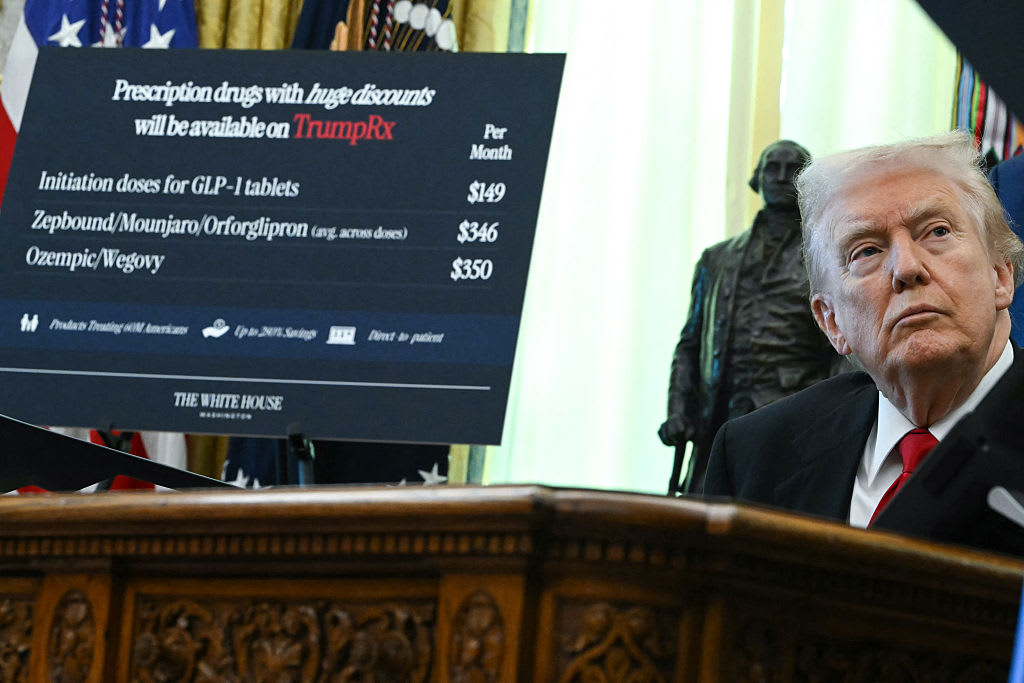After-Christmas shopping: How to make the most of post-holiday sales
Holiday shopping doesn't end with Christmas. After the holiday, and well into January, shoppers can take advantage of fatter discounts on clothing, home decor and other items.
In fact, a National Retail Federation survey of nearly 8,000 adults found that 68% of holiday consumers will likely shop the week after Christmas. Nearly 50% plan to take advantage of post-holiday sales and promotions, and 27% plan to use gift cards. And more than half of shoppers say they will return or exchange any unwanted gifts or holiday items within the first month after receiving them.
But just as shoppers should scrutinize the bargains on Black Friday, they need to do the same for post-Christmas deals.
"Don't assume that a sale is a good deal," said Julie Ramhold, senior staff writer at DealNews.com, a deal comparison website. "Do price comparisons."
In addition to DealNews.com, Ramhold cited such sites as Camelcamelcamel.com, an Amazon price tracker, and Honey, a browser extension that searches for coupons and cash-back offers and tracks prices on websites including Amazon.com, Target.com and Walmart.com. She said shoppers need to figure out the price history of the item and whether it's lower than Black Friday's deal.
Here are tips for post-Christmas shopping.
Shop ahead for next year
The post-Christmas shopping period is a good time to stock up on items like wrapping paper, cards and home decor that shoppers will need next year. For example, discounts on decor drop to 80% after Dec. 25, according to Ramhold. She recommended heading to the sales racks right after Christmas since there won't be much selection if bargain hunters wait longer.
Shop for current in-season goods
Last year, about one-third of post-Christmas deals was for clothing and accessories, according to DealNews.com. But stores like Victoria's Secret and Michael Kors also use this period to run semi-annual sales. Discounts on sweaters and other winter clothing are about 50%, similar to Black Friday, so it's best to wait until after January 1, when the deals deepen to 70%, according to DealNews.com.
Still, some retailers like Target start their after-Christmas deals with more aggressive cuts. Target is taking up to 70% off on clothing and shoes for the family starting Thursday, for instance.
As for electronics, it's considered best to hold off until after the annual Consumer Electronics Show in early January, where new tech products will be displayed. That will help retailers decide which older products to discount.
Looking for a new TV? Wait until right after the Super Bowl in early February, according to Marshal Cohen, chief industry adviser of the NPD Group Inc., a market research firm. And shoppers can always count on exercise equipment to be on sale. DealNews.com saw more exercise equipment deals in January than during any other month this past year.
To get the best deals, look for merchandise sold at stores that differs from their primary selection. For example, Cohen suggested buying luggage and home appliances at T.J. Maxx.
Returns aren't always easy
Don't expect to buy an item in December and go back to the store to return it in April. Every retailer's return policy is different, and shoppers need to read the fine print on the receipt or check the retailer's website.
Overall, retailers' return policies have been shrinking. Some well-known retailers like Macy's and Kohl's are following a trend of implementing ever-shorter return periods. Last year, Bed, Bath & Beyond cut down its unlimited return policy to one year; today the deadline to return is 180 days. Stores that once had unlimited return policies have cut them, in some cases, to 90 days or less, according to Edgar Dworsky, founder of the Boston-based consumer advocacy website Consumer World.
Still, many retailers offer special extended holiday return deadlines, Dworsky said. That allows gifts purchased in November to be returned until mid to late January, beyond the normal return deadlines in some cases, according to Consumer World.
Dworksy said that stores continue to "slice and dice" their return policies, creating knotty rules for specific products. For example, a TV may have a shorter return window than a sweater.





